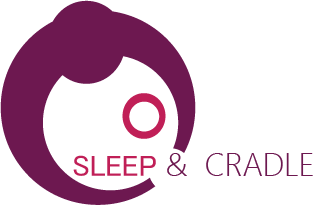
Getting enough sleep is crucial for newborn babies, and understanding their sleep cues can help parents establish healthy sleep patterns. In this article, we will explore the different cues that newborns use to communicate their need for rest and how to respond to them effectively.
Newborns have unique ways of communicating their sleepiness, and as parents or caregivers, it is important to recognize these signals. From yawning and rubbing their eyes to turning their heads away from stimuli, these cues indicate that your baby is tired and ready for sleep.
By understanding these cues, parents can create a sleep-friendly environment, establish a consistent sleep routine, and ensure their baby gets the necessary rest for their growth and development. It is also important to understand sleep cues to prevent overstimulation, which makes fall asleep and stay asleep.
Join us as we explore the fascinating world of newborn sleep cues and equip parents and caregivers with the knowledge to help their little ones develop healthy sleep habits from the beginning.
Importance of Understanding Newborn Cues
Understanding newborn cues is essential for parents to ensure their baby's well-being. Sleep is vital for newborns as it is crucial to their growth, development, and overall health. Parents can create an environment that promotes healthy sleep patterns by identifying and responding to their sleep signals as they communicate their need for sleep through various cues. Recognizing them is the first step towards establishing a successful sleep routine. By understanding these cues, parents can prevent their baby from becoming overtired, which can lead to difficulties in falling asleep and staying asleep.Common Sleepy Signals in Newborns
Newborns have several common cues that indicate their need for sleep. One of the most noticeable cues is yawning. When your baby starts to yawn, it is a clear signal that they are tired and ready for sleep. Rubbing their eyes is another standard sleepy signal in newborns. Babies rub their eyes as a way of soothing themselves and as a clear indication that they are feeling sleepy. This is especially true if the baby also shows other signs of tiredness, such as being fussy or irritable. Becoming less active and turning their head away from stimuli is another cue that newborns use to communicate their sleepiness. If your baby is turning their head away from lights, sounds, or other stimuli, it is a sign that they are trying to block out the environment and are ready to sleep.Understanding Hunger Cues in Newborns
Parents must be able to differentiate between sleepy cues and hunger cues in newborns. While both cues are essential to address, mistaking one for the other can lead to unnecessary sleep disruptions or feeding difficulties. Hunger cues in newborns include lip smacking, rooting, and putting their hands or fists to their mouths. These cues indicate that your baby is hungry and needs to be fed. It is essential to respond promptly to hunger cues and spend time feeding your baby to ensure your baby's nutritional needs are met. Differentiating between sleepy and hungry cues can be challenging for parents, especially in the early days. However, with time and observation, you will learn your baby's pattern and identify the appropriate cue.Other Cues Indicating Sleepiness in Newborns
Apart from yawning, rubbing their eyes, and turning their head away from stimuli, newborns may exhibit other cues indicating sleepiness. Some babies may become less active and start moving more slowly when tired. They may also have a glazed or dazed look in their eyes. Decreased activity levels can clearly indicate your baby is ready for sleep. Additionally, some babies may become quieter and less responsive to external stimuli as they get tired. These cues can be subtle, but you can learn to recognize them by paying close attention to your baby's behavior.Creating a Sleep Routine Based on Newborn Cues
Establishing a sleep routine based on your baby's cues can be incredibly helpful in promoting healthy sleep habits. By consistently responding to their sleepy signals, you can create a predictable and comforting environment that aids in developing good sleep patterns. Start by observing your baby's natural sleep patterns and cues. This will help you identify the times of day when they are most likely to feel tired. Once you have identified these cues, create a sleep routine that includes dimming the lights, playing soothing music, or engaging in a calming bedtime routine. Consistency is vital when establishing a sleep routine. By following the same steps each night, your baby will begin to associate these actions with sleep and find comfort in the familiar routine. This will make it easier for them to fall asleep and stay asleep throughout the night.Tips for Recognizing and Responding to Sleepy Signals
Recognizing and responding promptly to your baby's sleepy signals is essential for establishing healthy sleep patterns. Here are some tips to help you effectively respond to your baby's cues:- Pay close attention to your baby's behavior and look for subtle signs of sleepiness.
- Create a sleep-friendly environment by dimming the lights and reducing external stimuli.
- Establish a consistent sleep routine that includes calming activities.
- Respond promptly to your baby's cues by soothing them and creating a safe and comfortable sleep space.
- Avoid overstimulation and ensure a quiet and peaceful sleep environment.
